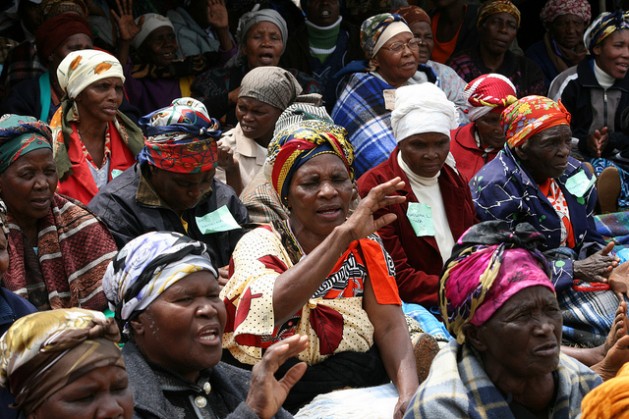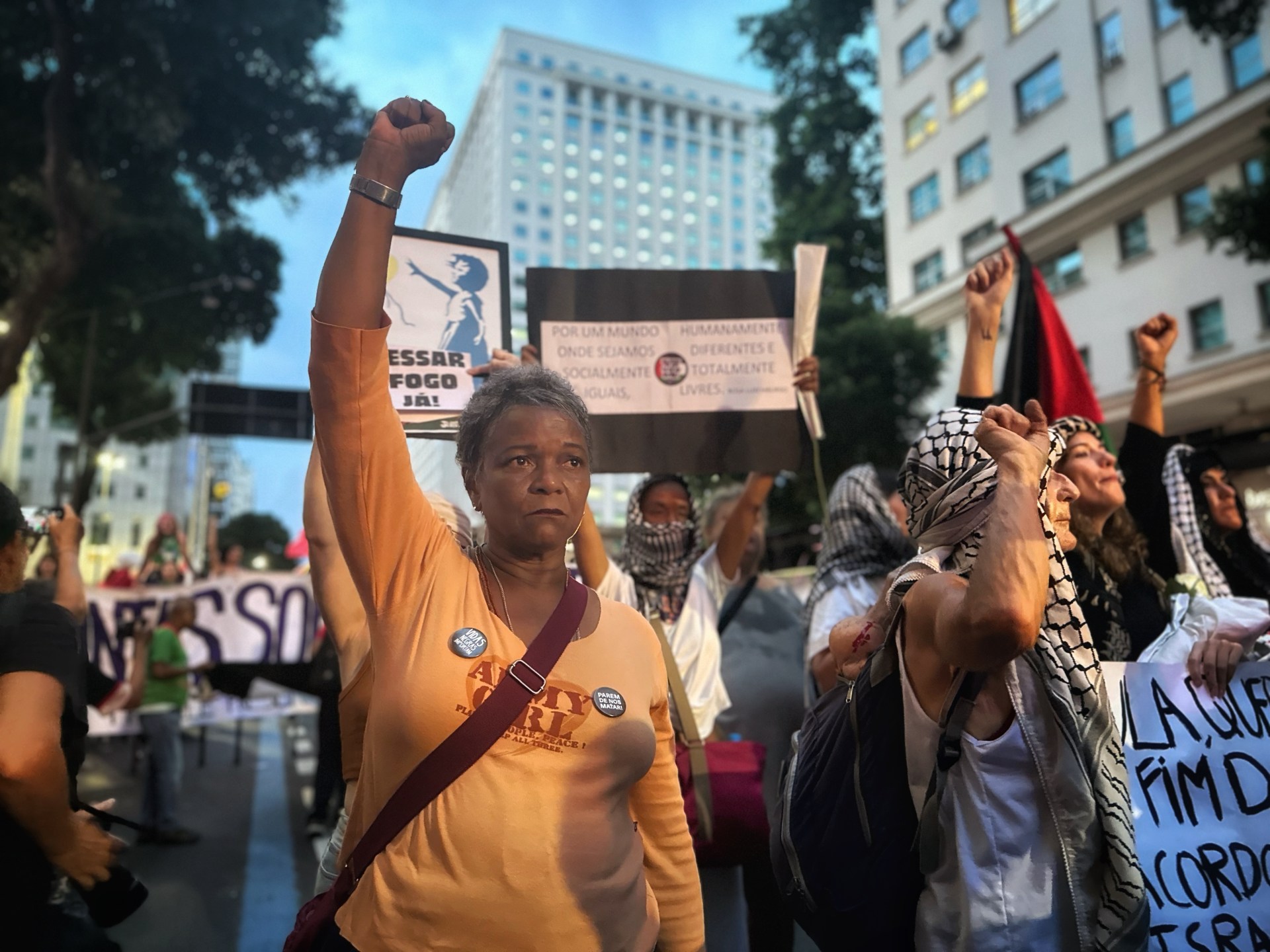The Humanitarian Rescue Fleet Faces Hurricane Meloni — Global Issues
BARCELONA, Dec 13 (IPS) – It was a hellish journey aboard a crammed boat amid three-meter waves. It had started on a Libyan beach, and at the gates of winter. On December 11, the last 500 migrants rescued from the waters of the Mediterranean disembarked exhausted but relieved in the south of Italy. They had all been rescued by vessels run by NGOs Doctors Without Borders (MSF) and SOS Humanity.
The response to the humanitarian emergency in the Central Mediterranean is one of the challenges for the new Italian far-right government led by Giorgia Meloni, its prime minister.
As it happens, a serious diplomatic crisis broke out last November between Rome and Paris after Italy prevented the landing of the SOS Humanity’s ship, the Ocean Viking and diverted it to the port of Toulon, in the south of France.
About the same time, the Geo Barents (run by MSF) refused to comply with a partial disembarkation order from Rome, which would have allowed only some of the 572 rescued to leave the ship. MSF ended up winning the fight and all those rescued finally got to set foot in Catania (Sicily).
“The selective disembarkation does not have any regulatory framework. It is nothing more than a new attempt to block the NGOs,” Juan Matías Gil, head of the MSF Search and Rescue mission in Italy, told IPS over the phone.
However, all those rescued on the 11th landed without facing any further administrative obstacles. Gil cited the recent crisis with France as a possible motivation for the Meloni government finally allowing the ship to dock and let the rescued people disembark.
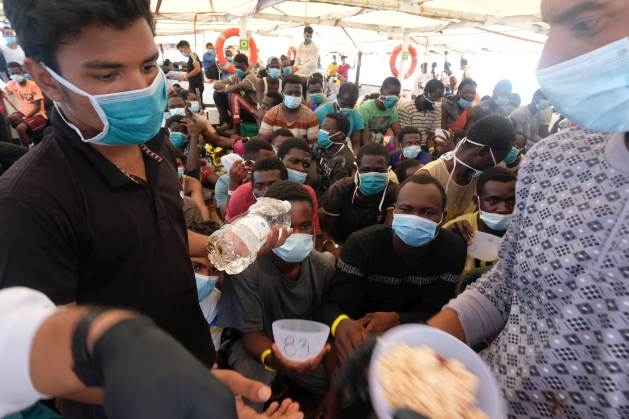
The Italian Ministry of the Interior claimed it was the weather, “the imminence of a storm and the need not to saturate the reception centres.” There has been no change whatsoever in Rome’s policies, Italian officials stressed.
Successive Italian governments have been the Mediterranean rescued fleet’s fiercest adversary since 2017, two years after it went to sea.
Closed ports, requisitioned ships, judicial processes: Rome has resorted to every tool at its disposal to block a fleet that today has nine ships operated by different NGOs.
“Under the previous government of Mario Draghi, we already had a glimpse to those policies that Meloni subscribes to today, but there was hardly any talk about it,” recalls Gil, an Argentine today based in Rome. “Back then, we could easily spend up to ten or twelve days waiting until we were granted a safe port.”
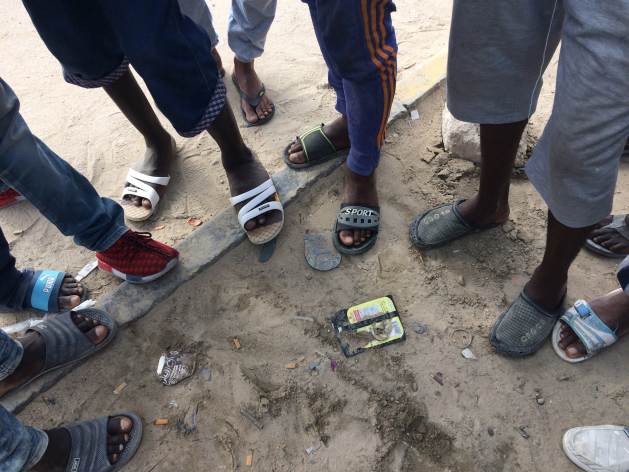
According to UNHCR data updated on December 4, more than 94,000 people arrived in Italy by the sea in 2022. Most departed from Libya, almost always aboard fragile rafts and skiffs run by human traffickers.
Although international law requires the granting of a safe port as soon as possible to any ship with vulnerable people on board, the rescue fleet faces waits that can exceed two weeks.
Gil sees it as yet one more ingredient in a campaign against the rescue fleet.
“On the one hand, there is the use of resources which lack a legal basis, such as selective landing. Making us go to France or Spain means tripling the distances and drastically reducing the time we spend in the rescue zone”, says Gil.

He also points to the “criminalization” of NGOs by the Italian government. They are often accused of collusion with the trafficking mafias, and even of posing a “pull factor”. However, Gil stresses that the fleet as a whole is only responsible for 14% of the landings in Italy, according to data from the Italian Institute for International Political Studies.
“What stings in Rome is that we make the problem visible, that’s all,” said Gil.
“A cheating game”
That the vast majority of the rescued arrive from Libya results from instability caused by the absence of a stable government since the 2011 war. Rival factions in the east and west are still fighting for control of the country.
To contain the migratory flow, Europe began training and equipping a Libyan coast guard fleet in 2016. But the force is widely accused of using violence against migrants and being infiltrated by trafficking mafias.
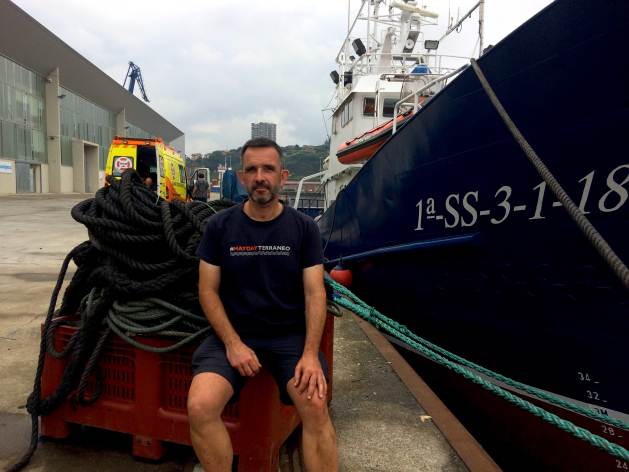
NGOs say that many of those migrants returned to land end up being victims of human rights abuses in the same Libyan detention centres managed by the two Libyan governments.
According to International Organization for Migration data, more than 25,000 people have died or disappeared in the Mediterranean since 2014. As the southern border of the European Union turns into a mass grave, the humanitarian rescue fleet faces all kinds of obstacles to avoid more drownings.
Draconian inspections by the Italian Coast Guard can block ships in port for months. With an old Basque fishing boat converted into a rescue ship, Salvamento Marítimo Humanitario (SMH), a Spanish NGO, knows this first-hand.
SMH coordinator Iñigo Mijangos spoke to IPS from Vinarós in eastern Spain, where the rescue ship is currently docked.
“Just missing a fire extinguisher can have an impact on the qualification of the entire Spanish merchant fleet that makes international voyages,” explained the 51-year-old Basque. They undergo inspections by the General Directorate of the Spanish Merchant Marine before leaving port, to prevent problems with Italian officials.
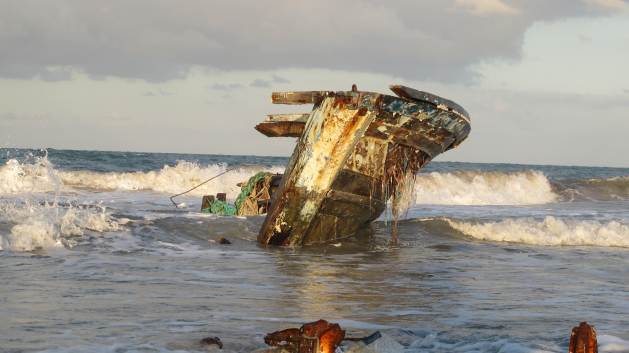
“As the total calculation is done on a triennial basis, we have postponed our next mission until next January, just after the start of the new year,” Mijangos clarified.
Italian politicians have on occasion faced consequences for overreach against the fleet. Matteo Salvini, who served as Italy’s Interior Minister between June 2018 and September 2019, currently faces a judicial inquiry into his efforts to block a hundred migrants rescued by Open Arms, a Spanish NGO, from disembarking in Italy. They were forced to stay aboard for 19 days, in apparent violation of Italian and international sea laws.
Salvini faces 15 years in prison in a process that started in November 2021 but which defence lawyers have so far managed to stonewall. Matteo Piantedosi, formerly Salvini’s right hand, now has his old job, as minister of Interior in the Meloni government.
From the port of Barcelona, David Lladó, head of the Search and Rescue mission with Open Arms, spoke to IPS while his crew struggle to set sail for the central Mediterranean on December 24.
“We are counting on the delays in granting us a port, so this time we are carrying food for 30 days and 300 people. We don’t know how long they will have us waiting,” said the 38-year-old sailor.
Delays can get even longer when rescue operations are carried out in Maltese territorial waters, which are near Libya. Lladó recalls that the government in Valletta rarely allows rescue ships to disembark— the last time was in July 2020. But international sea rescue protocols dictate that they first try the island, before contacting Rome.
“It’s like a cheating game in which those in charge change the rules as the game progresses,” claims Lladó. “At sea, on land, in court… You never know what will come next, but you can’t just wait in port.”
© Inter Press Service (2022) — All Rights ReservedOriginal source: Inter Press Service
Check out our Latest News and Follow us at Facebook
Original Source




